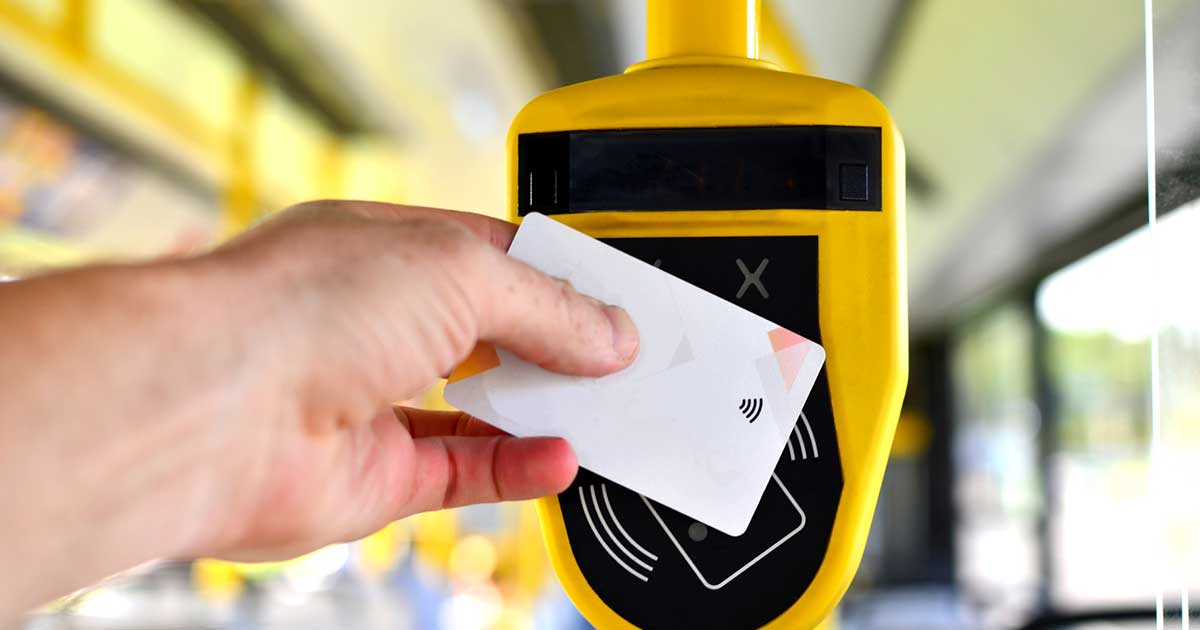Move Minnesota & Allies Push for Fair Transit Fare Enforcement
Access to equitable and sustainable transit is a pillar of strong communities, a resilient climate, and a thriving workforce. Transit is what connects us. But there are many ways that the current system is falling short—and failing people most in need. Saddling people with criminal records because they didn’t—or couldn’t—pay a $2 bus fare is a major example. To build a just and successful transit system that expands mobility for all, it’s time to change how transit fares are enforced.
Minnesota lawmakers turned fare evasion into a crime under state law in 1983, creating the enforcement mandate currently tying the hands of transit agencies statewide. Our team has been busy working behind the scenes with allies, advocates, and elected officials to develop and build support for a new policy framework that will move things in the right direction.
Reforming transit fare enforcement is Move Minnesota’s biggest policy change initiative this legislative session. We support the 2020 fare enforcement bill as introduced by Rep. Brad Tabke (D-Shakopee) because it lays forward a commonsense proposal that does not further criminalize poverty and takes an important step toward ensuring transit systems in both the metro region and across our state are welcome to all and work for all.
The bill, HF 3085, does two big things:
- It decriminalizes riding public transit without proof of payment. Misplace your bus pass or Go-To card? Not carrying singles and quarters around in your pocket? Just don’t have the resources to pay to get to a critical class or appointment? Failure to pay a $2 fare is currently classified as a misdemeanor and earns riders a fine of $180 and a permanent criminal record that will limit future employment and housing opportunities. That criminal misdemeanor is the equivalent of charging someone with an assault or a $500 theft. When it comes to transit fares, it’s an excessive overreaction. This bill right-sizes the penalty to a petty misdemeanor and a $35 fine. A petty misdemeanor is not a crime—it’s the approach we have for traffic tickets and won’t land you in jail.
- It creates a new transit ambassador program to address the underlying reasons why fares sometimes go unpaid. Right now, because state law says riding without a fare is a crime, state law also says transit fares have to be enforced by police—placing uniformed officers with guns in situations where it’s just not necessary. Under the alternate program HF 3085 creates, trained ambassadors can check fares and also provide people in need with information about, and access to, valuable support services. By connecting folks to the Transit Assistance Program (TAP), support for people experiencing homelessness, and other resources, the ambassador program will ensure that riders using our public transit system are being treated fairly—especially if they are facing some of life’s most challenging circumstances. Further, ambassadors would not have enforcement quotas, would be trained to de-escalate crisis situations, and include people “who are representative of transit users and from cultural, ethnic, and racial communities that are historically underrepresented in state or local public service.”
A coalition of leaders are coming together to acknowledge the problem with the current system and to back this approach. Among those who have already spoken out in support: Minnesota House Transportation Finance and Policy Chair Frank Hornstein, Metropolitan Council Chair Charlie Zelle, Saint Paul City Councilmember Mitra Jalali, Sierra Club North Star Chapter, MN350, and Twin Cities Transit Riders Union. State Reps. Hornstein, Dehn, Youakim, Elkins, Bernardy, and Cantrell have all signed on as co-authors of Rep. Tabke’s bill to-date.
Similar efforts across the country have earned bipartisan support. Nationally, there is increasing recognition that heavy-handed criminal penalties for not paying fares is discriminatory, ineffective, and a waste of funds. As a society, we are coming to terms with the decades of harm and inefficacies that have been perpetuated through failed tough-on-crime policies that have disproportionately affected communities of color and people with low-incomes. Here in the Twin Cities region, Metro Transit’s policy of fare enforcement is costly, and as Metro Transit’s own data shows, the criminal citations and arrests under the current system have disproportionally been enforced on people of color. A 2015 analysis prompted by ACLU Minnesota indicates that compared to white adults, black adults were 26% more likely and native adults were 152% more likely to be cited for first-time fare evasion on the Metro Transit system.
As Move Minnesota organizer Finn McGarrity emphasized in their testimony to the House Transportation Finance and Policy Committee on February 13, this issue is at once deeply personal and deeply intertwined with some of our biggest systemic inequalities. Criminalization and incarceration have life-changing consequences for individuals and families, with damaging ripple effects in our communities as a whole—from disrupting people’s ability to find or keep a job, to care for their children, to access housing and quality healthcare, and to build and rely on their social support networks. As Finn shared, “It wasn’t that long ago in my own life that I was working a low-wage job and after I paid my rent and bills, I still had to figure out how to stretch $26 dollars ten days until my next pay day—and I had to both eat and catch the train to work. Folks having to face that decision are often in tougher circumstances than I was, and no one should have to face criminal penalty as a result. I’m grateful I didn’t have to.”
Plain and simple: Everyone should be able to ride our public transit systems with dignity. Being unable to pay for a bus ticket should not be a criminal offense. Change is possible—if we fight for it.
Watch for more opportunities to show your support alongside Move Minnesota and allies as this important policy bill moves forward this session! And be sure to catch up on Move Minnesota’s other big focus at the State Capitol in 2020: advocating for the transformative investments in transit, bicycling, walking, and rolling that are key to meeting Minnesotan’s needs and protecting our future.

